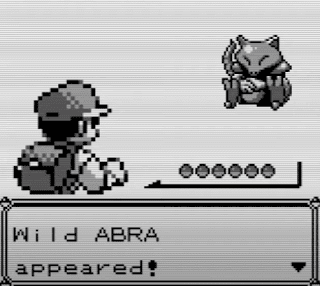Happy new year! it feels like its been a long time without posting. Or maybe its just my feeling. This blog has been boosted like x 10 in visitors since Alex Schroeder mentioned me in his blog (its not like I had many before lol) and I should be making only hIgH qUaLiTy posts from now on.
I want to take an entry to talk about my initiative houserule, and why I like it so much.
Basically, unless there is surprise, initiative goes to the side whose has the single member with more max HP, and only in case of a tie I randomize it.
Additionally to this, I don't do the "one side acts, then the other side acts" thought it would work perfectly I guess. I complicate it a little further by making the side who acts choose one member which acts (for the monsters, the GM chooses) and then, after the action, a member of the other side acts; and this goes on until everyone involved has taken its turn. Arrows and Spells can be shot reactivelly (spells require an armor-based roll to work in time) but doing so it consumes the turn of the shooter/caster.
I've been playing like this in my last campaign and I've accostumed myself a lot to it; to the point that I don't think I am going back. Combat is much more swift (much more combined with the "no damage, just take a Hit Die" houserule), and also it makes interesting effects in game:
Having a Fighter in the party is suddently much more important. His instincts help everyone to take the lead on a fight, even if he doesn't fight himself: Maybe he just grabs the initiative so the thief can do something first. Tougher monsters are also scarier, because their sheer "speed". Suddently it also matters in which turn of the watch the monster appears: if the fighter is asleep, the monster can get a great advantage.
The "alternate sides" thing also adds an element of strategy for the players, something that its often missing from combat when a game makes the fights a little bit abstracted. Using this (also abstract) ways to control combat gives PCs more buttons to press which, in my opinion, adds a +1 to old D&D.
Sometimes I like to distinguish swords from the other weapons because they add a little bonus to HP only for initiative purposes. They are the weapon of heroes after all.
And thats it.
I want to note that it is also possible to make a much more gamist initiative without rolls, and I found out by playing pokémon this last weeks.
In the GBA games, initiative works like this: both trainers choose their movement at the same time, then the pokemon with most speed acts first. Stats are very granular, so having a tie is very rare.
Certain movements have priority over others, regardless of speed. For example, taking a potion or changing pokemon goes always before any attacks (there is but one attack AFAIK that specifically strikes before retiring the pokemon). Some attacks have a "quick" tag that makes them go before the enemy, and there are slow attacks too, which work the opposite way.
It could very easily be ported to tabletop by assigning a sort of speed stat (dexterity is the easiest) and then listing which kind of actions have priority over others. This very choice can lead to very different combat systems and tones (for example, if healing has priority over attacking, if spells go first or last, etc).
Offtopic: If you speak or understand spanish and like the game, I reccomend you this awesome Team Rocket Edition hack by Dragonsden. You play as a Team Rocket recruit acting parallel to Red and Blue in the original Game Boy games. The lore of the game is so good that its really a pity that its not "official", I am really enjoying it!



No comments:
Post a Comment